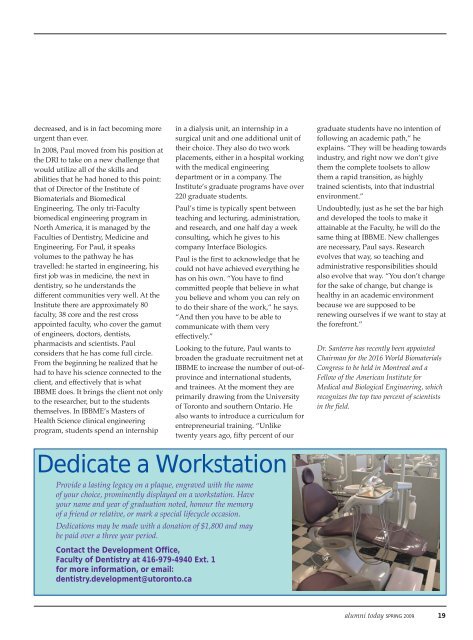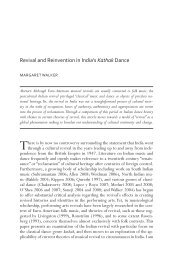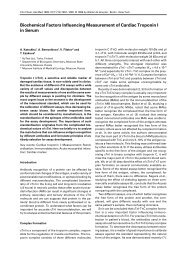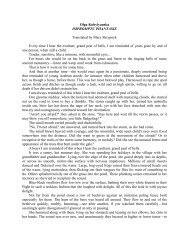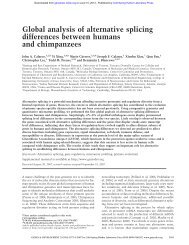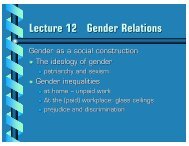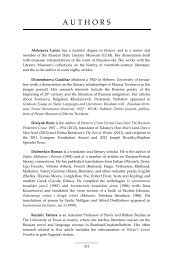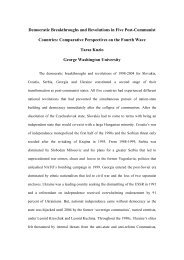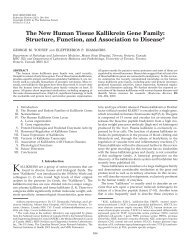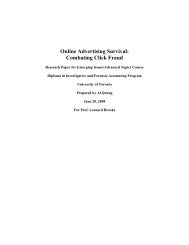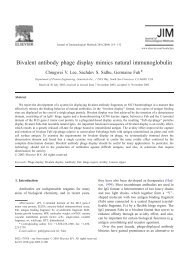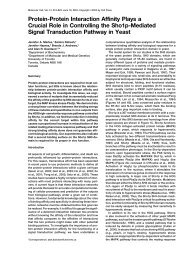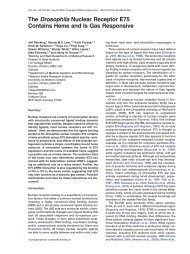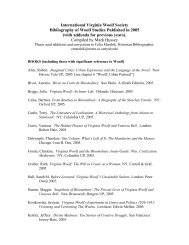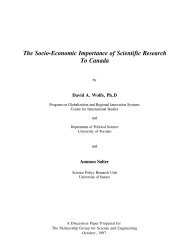Alumni Today - University of Toronto
Alumni Today - University of Toronto
Alumni Today - University of Toronto
Create successful ePaper yourself
Turn your PDF publications into a flip-book with our unique Google optimized e-Paper software.
decreased, and is in fact becoming more<br />
urgent than ever.<br />
In 2008, Paul moved from his position at<br />
the DRI to take on a new challenge that<br />
would utilize all <strong>of</strong> the skills and<br />
abilities that he had honed to this point:<br />
that <strong>of</strong> Director <strong>of</strong> the Institute <strong>of</strong><br />
Biomaterials and Biomedical<br />
Engineering. The only tri-Faculty<br />
biomedical engineering program in<br />
North America, it is managed by the<br />
Faculties <strong>of</strong> Dentistry, Medicine and<br />
Engineering. For Paul, it speaks<br />
volumes to the pathway he has<br />
travelled: he started in engineering, his<br />
first job was in medicine, the next in<br />
dentistry, so he understands the<br />
different communities very well. At the<br />
Institute there are approximately 80<br />
faculty, 38 core and the rest cross<br />
appointed faculty, who cover the gamut<br />
<strong>of</strong> engineers, doctors, dentists,<br />
pharmacists and scientists. Paul<br />
considers that he has come full circle.<br />
From the beginning he realized that he<br />
had to have his science connected to the<br />
client, and effectively that is what<br />
IBBME does. It brings the client not only<br />
to the researcher, but to the students<br />
themselves. In IBBME’s Masters <strong>of</strong><br />
Health Science clinical engineering<br />
program, students spend an internship<br />
in a dialysis unit, an internship in a<br />
surgical unit and one additional unit <strong>of</strong><br />
their choice. They also do two work<br />
placements, either in a hospital working<br />
with the medical engineering<br />
department or in a company. The<br />
Institute’s graduate programs have over<br />
220 graduate students.<br />
Paul’s time is typically spent between<br />
teaching and lecturing, administration,<br />
and research, and one half day a week<br />
consulting, which he gives to his<br />
company Interface Biologics.<br />
Paul is the first to acknowledge that he<br />
could not have achieved everything he<br />
has on his own. “You have to find<br />
committed people that believe in what<br />
you believe and whom you can rely on<br />
to do their share <strong>of</strong> the work,” he says.<br />
“And then you have to be able to<br />
communicate with them very<br />
effectively.”<br />
Looking to the future, Paul wants to<br />
broaden the graduate recruitment net at<br />
IBBME to increase the number <strong>of</strong> out-<strong>of</strong>province<br />
and international students,<br />
and trainees. At the moment they are<br />
primarily drawing from the <strong>University</strong><br />
<strong>of</strong> <strong>Toronto</strong> and southern Ontario. He<br />
also wants to introduce a curriculum for<br />
entrepreneurial training. “Unlike<br />
twenty years ago, fifty percent <strong>of</strong> our<br />
Dedicate a Workstation<br />
Provide a lasting legacy on a plaque, engraved with the name<br />
<strong>of</strong> your choice, prominently displayed on a workstation. Have<br />
your name and year <strong>of</strong> graduation noted, honour the memory<br />
<strong>of</strong> a friend or relative, or mark a special lifecycle occasion.<br />
Dedications may be made with a donation <strong>of</strong> $1,800 and may<br />
be paid over a three year period.<br />
Contact the Development Office,<br />
Faculty <strong>of</strong> Dentistry at 416-979-4940 Ext. 1<br />
for more information, or email:<br />
dentistry.development@utoronto.ca<br />
graduate students have no intention <strong>of</strong><br />
following an academic path,” he<br />
explains. “They will be heading towards<br />
industry, and right now we don’t give<br />
them the complete toolsets to allow<br />
them a rapid transition, as highly<br />
trained scientists, into that industrial<br />
environment.”<br />
Undoubtedly, just as he set the bar high<br />
and developed the tools to make it<br />
attainable at the Faculty, he will do the<br />
same thing at IBBME. New challenges<br />
are necessary, Paul says. Research<br />
evolves that way, so teaching and<br />
administrative responsibilities should<br />
also evolve that way. “You don’t change<br />
for the sake <strong>of</strong> change, but change is<br />
healthy in an academic environment<br />
because we are supposed to be<br />
renewing ourselves if we want to stay at<br />
the forefront.”<br />
Dr. Santerre has recently been appointed<br />
Chairman for the 2016 World Biomaterials<br />
Congress to be held in Montreal and a<br />
Fellow <strong>of</strong> the American Institute for<br />
Medical and Biological Engineering, which<br />
recognizes the top two percent <strong>of</strong> scientists<br />
in the field.<br />
alumni today SPRING 2009 19


